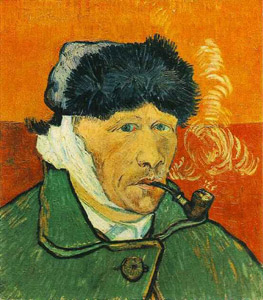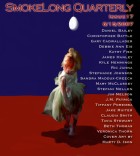If you were writing a story about you, what would replace “Asphalt” in the title “The Attraction of Asphalt”—and why?
This is a tricky question, because you can tell so much about a person by knowing what attracts them—and I’m one of those writers who hope to keep her (boring) personality a secret!
But seriously, I had to think hard about an answer, because there are so many different levels on which I’ve felt/feel attraction, from the mundane (food, window screens, toothpaste) to the lovely (men, friends) to the sublime (literature, spiritual life goals). I think one very general thing or state that attracts me is silence, peace, contentment. The feeling you have after a long day of weeding the garden. Or when you know a story is finished. Or even when you spend the whole day out in nature hiking or having a picnic, perhaps with someone you’re close to, and “there’s nothing to do, no promises to keep.” If we’re in this state permanently we’re either dead or depressed, and that’s not good. So I guess I keep being attracted to the next “breather,” especially now.
I’m currently working on a story exploring this idea. The main character has OCD and is always chasing the feeling of being “done” by succumbing to his urges and rituals. Fortunately (or not), he undergoes experimental brain surgery, which seems to solve his problem until… to be continued.
“The mother.” Talk, if you could, about your use of this moniker for this character.
I have some stories in which the parents remain nameless: i.e., they’re either Father or Mother. I do this to signify that their role as a parent is more important to the story than their individual traits.
“Attraction of Asphalt” is not about a specific mother and daughter; it is a story about a specific kind of situation: The moment when you realize that your parents—hitherto strong, trustworthy, infallible—have their weak and even dark side. I remember reading once that many children have a phase of nightmares in which their parents become monsters, signifying the disenchantment. Not everyone goes through a situation as dramatic and painful as Martina’s in this story. Most of us remember finding out that our parents lied about Santa or that our parents have sex (yuck!), and we end up accepting it. Still, I believe that the moment we lose our complete trust in our parents is interesting to explore.
What can you tell us about the Netherlands?
Not as much as I would like! I know my bio says I live partially in the Netherlands, and that’s true: Niels (who’s Dutch) and I go there for three months each year because of his job. But I’m German, and I never lived in the Netherlands for an extended period of time. Which means I still feel like a tourist. It’s still an enchanted place for me.
We live in Groningen, a University town in the North. Here are some random memories and snapshots:
We live in an old warehouse-turned-apartment building with thick walls and small windows. Our supermarket is called Albert Heijn, and they cater to the student population by selling half-prepared dishes like seasoned potatoes and pre-mixed stir-fry variants. There are cobblestone streets and canals and ships and houseboats and delicious chocolates, and wonderful dishes such as Stampot (potatoes, kale, and smoked sausage) and Witlof (endives wrapped in ham and cheese). The entire city center is a pedestrian area, but it is really ruled by flocks of students on bikes. Niels’s PhD diploma is in Latin (they switched to English now). We got married in a church that is not a church anymore. They use it for art projects and exhibitions and the occasional non-religious wedding. When it gets cold you can smell the oil heaters on the ships when you walk along the canal. The Northern Sea is nearby, and on a Sunday you can take the ferry to an island called Schiermonnikoog. It’s very quiet and windy, and it seems to have a reduced color spectrum: dune, sea, lighthouse-red, and deep blue. My favorite place on earth. I know this sounds like a theme-park, but it’s a very modern, alive, down-to-earth place. We’ll go back at the end of August.
What effect has Pittsburgh had on you and your writing?
I love Pittsburgh. I fell in love with it when I first came here in 2000 for some conference, and I still like it. It’s such a normal, relaxed place, without this whole meta-awareness of being a great city (a la New York City or Berlin). And everyone has been so welcoming. Ugh, that sounds so slimy, but I’m serious.
Two aspects about Pittsburgh influence the content of my writing, I guess. First, there’s CMU and this who academic scene, of which I’m not a part anymore, but I still get to watch from outside. CMU is big in robotics and AI and computer science, and I get to watch interesting events like the Robo Soccer Cup, and it’s not unusual to see a group of geeks sitting on the lawn hunched over laptops, tumbled-over robots spinning nearby. But seriously, I’m extremely interested in these issues and glad to have this intellectual feed nearby.
Then there is the more general aspect of getting to know how life works here in the US—the greater scope of everything, buying a house just like that, adjusting your sense of perspective—New York is close by, but it’s farther than, say, driving to Heidelberg from Groningen. And meeting so many fellow-foreigners is extremely interesting, too. Recently, we had some guests and noticed that we had as many different nationalities as people in the room. That’s great. In Germany, it just doesn’t happen.
The titles of the stories in this issue wowed me and got me thinking about the value of the great title. What are some great titles—for novels, stories, movies, albums, CDs, and the like? And what is the worst title you’ve ever encountered?
I wish I could come up with something completely hilarious, but I’m afraid the real turnoff, for me, are the bland titles. I have this tome here, The Half Brother, some big deal scandinavian masterpiece. Temptation to read? Zero. Or these Chuck Palahniuk one word titles: Choke. Lullaby. Haunted. Yawn.
Successful titles from my perspective are those that make sense (i. e. don’t sound deliberately opaque) but seem to hint at some additional significance—for some reason I have to think of this De La Soul record, Three Feet High and Rising. It makes sense, yet what does it mean? Listen and find out. Or even, The Night Listener, As Meat Loves Salt, or The Right Stuff. They’re all simple enough, and yet unusual. They make you wonder about the kind of book beneath the cover. Well, at least they make me wonder…



 The core workshop of SmokeLong Fitness is all in writing, so you can take part from anywhere at anytime. We are excited about creating a supportive, consistent and structured environment for flash writers to work on their craft in a community. We are thrilled and proud to say that our workshop participants have won, placed, or been listed in every major flash competition. Community works.
The core workshop of SmokeLong Fitness is all in writing, so you can take part from anywhere at anytime. We are excited about creating a supportive, consistent and structured environment for flash writers to work on their craft in a community. We are thrilled and proud to say that our workshop participants have won, placed, or been listed in every major flash competition. Community works.